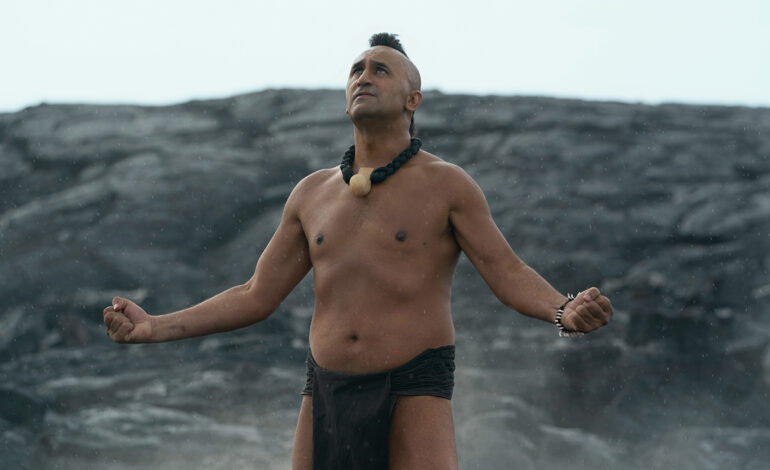‘Chief of War’ Episode 5 Delivers Powerful Moments of Silence

The fifth episode of Chief of War captivates audiences by conveying profound emotions through minimal dialogue. Co-creators Thomas Pa’a Sibett and Jason Momoa, along with showrunner Doug Jung, craft an episode where silence and soundscapes evoke the depth of human experience.
As the story unfolds, Ka’iana, portrayed by Momoa, returns to the Hawai’ian islands, a moment underscored by a stirring score from Hans Zimmer and James Everingham. The emotional weight of his homecoming is palpable as he kneels, smiling, and embraces the familiar sand of his homeland. The reunion with his family—his brothers Nāhi and Namake, his wife Kupuohi, and her sister Heke—is marked by striking silence that amplifies their joy and sorrow. Namake’s discreet act of concealing the necklace Kupuohi gifted him during Ka’iana’s absence reveals the complexities of love and loyalty.
“This lack of resolution is remarkable in today’s second-screen television landscape,”
a sentiment echoed by critics who appreciate the show’s commitment to authenticity in storytelling.
Another poignant narrative thread follows Vai, whose Hawai’ian name is Waine’e. Her reunion with family is fraught with tension, reflecting her struggle against the patriarchal norms of Hawai’ian society. Through wordless exchanges, the episode explores themes of abandonment and forgiveness, leaving viewers in suspense about her son’s potential understanding of her choices.
The episode opens with a scene where Kamehameha imparts agricultural wisdom to village children, drawing a parallel between the land and its people. As Ka’ahumanu, a central figure in the episode, observes Kamehameha’s teachings, she grapples with her inability to provide the family he values so highly.
A significant moment occurs when Namake steps away from the festivities to offer prayers to the gods in gratitude for Ka’iana’s return. This act of reverence signifies not only personal relief but also the turbulence of emotions he must navigate. It is within this context that Ka’iana and Kupuohi share a moment of intimacy, portrayed through silence, showcasing the nuances of their relationship amidst a backdrop of family dynamics.
The narrative escalates with the introduction of conflict as Ka’iana, having once aided the ruthless King Kahekili, expresses his intention to rebel against him. This sets the stage for a sled race initiated by Kamehameha, a thrilling yet unrealistic spectacle that underscores the episode’s blend of drama and entertainment.
As the sled race unfolds, the stakes rise dramatically. Ka’iana’s victory hinges on a risk-taking maneuver that symbolizes his willingness to embrace the unknown. When he and Kamehameha ultimately plunge into the ocean, the moment encapsulates a bond forged through mutual respect and shared experiences.
The episode highlights the importance of community and connection in a world where individualism often overshadows collective strength. Chief of War illustrates the value of empathy, understanding, and the recognition that others are not adversaries but integral to our shared humanity.
As viewers reflect on the episode’s themes, it becomes clear that this installment not only entertains but also resonates on a deeper level, urging audiences to consider the significance of relationships in a tumultuous world. The portrayal of characters navigating their complex emotions against the backdrop of Hawai’ian culture is a testament to the series’ ability to blend storytelling with cultural authenticity.






